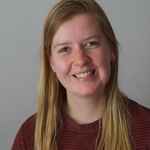
Child Development and Education
Study programme
Look forward to an intensive two-year programme that trains you to become a researcher in education and child development. The programme consists of 120 EC credits.
What will you learn?
- Theoretical knowledge of child development in different contexts
- The ability to understand advanced academic publications in your field of specialisation
- Statistical skills
- Skills to design, conduct and report about new research questions and hypotheses, based on a large variety of previous studies
- Experience with our department's extensive experimental research facilities
COURSES
SEMESTER 1
SEMESTER 2
EC
-
Intervention ResearchPeriod 16
-
Methods and Statistics in Education ResearchPeriod 1Period 212
-
Academic SkillsPeriod 1Period 2Period 3Period 4Period 5Period 63
-
Research InternshipPeriod 1Period 2Period 3Period 4Period 5Period 618
-
Multilevel Data AnalysisPeriod 3Period 49
-
Specialisation: elective courses (see UvA Course catalogue for options)Period 1Period 2Period 4Period 512
Additional information

Copyright: Hannah Boll
The clinical route was the perfect choice for me: I wanted to explore my interests in the field of statistics, but not lose sight of the practice because I love working with children.Student Hannah Boll
Experience the programme
Frequently asked questions
- How much of a statistics background do you need?
- Is there a minimum GPA requirement for the Master's?
- What research topics are covered?
- How do I choose a topic for my research internship and thesis? How much guidance is provided?
- How many students are in the work groups?
- Is it possible to combine studying for this Master's with a part-time job?
- Is the clinical route in the research master also accessible for international students?
- Is there a pre-Master’s programme for students from non-educational backgrounds?


